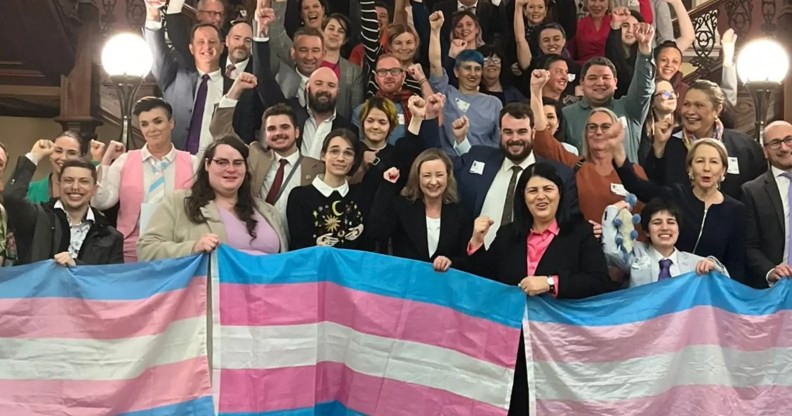Queensland passes new law allowing trans people to self-ID on birth certificates

Queensland has passed a law to allow trans people to easily update official documents, and parents to register no gender at all on newborns. (Twitter/@EqualityAu)
Trans and gender diverse people in Queensland, Australia will no longer require surgery to update the gender on their birth certificates and other official documents, following a law change by the state parliament.
On Wednesday (14 June), the Queensland parliament passed laws that made a string of changes to self-identification.
The changes mean people aged 16 and over can legally self-identify on their birth certificate without sexual reassignment surgery, as long as a supporting statement is provided by an adult they’ve known for at least a year.
People aged 12 to 15 can do so too if they get parental permission or apply to the courts, The Australian reported.
Parents also have the option to not list any gender on the birth certificate of a newborn, with attorney-general Yvette D’Ath saying it would “give people the greatest agency over what information they want recorded”.
“Providing these protections to trans and gender-diverse people does not pose a threat to others.”
She also highlighted that Queensland was “one of the last Australian jurisdictions to progress reforms in this area” and, as a result, had observed the models in other jurisdictions to create their own.
Advocacy group Equality Australia celebrated the changes, labelling them “momentous” in a statement posted to social media.
“Queensland was one of the last places in Australia to have these cruel and outdated legal barriers. This change will make a huge difference to the lives of trans and gender diverse people in Queensland and those living elsewhere but born in Queensland.”
The reforms were opposed by the Liberal National Party. Ahead of the vote, its justice spokesperson, Tim Nicholls said the party was not supporting the reforms because of “significant and genuine” reservations about allowing children to make the changes.
“Children under the age of 16 are often ill-equipped psychologically to make such a large and life-changing alteration to their sexual identity and we should go down this path, as I said in my very early introduction, with caution and consideration.”
However, highlighting how the state had learnt from similar models in other jurisdictions, D’Ath said the reforms were not “dangerous or reckless”.
How did this story make you feel?

